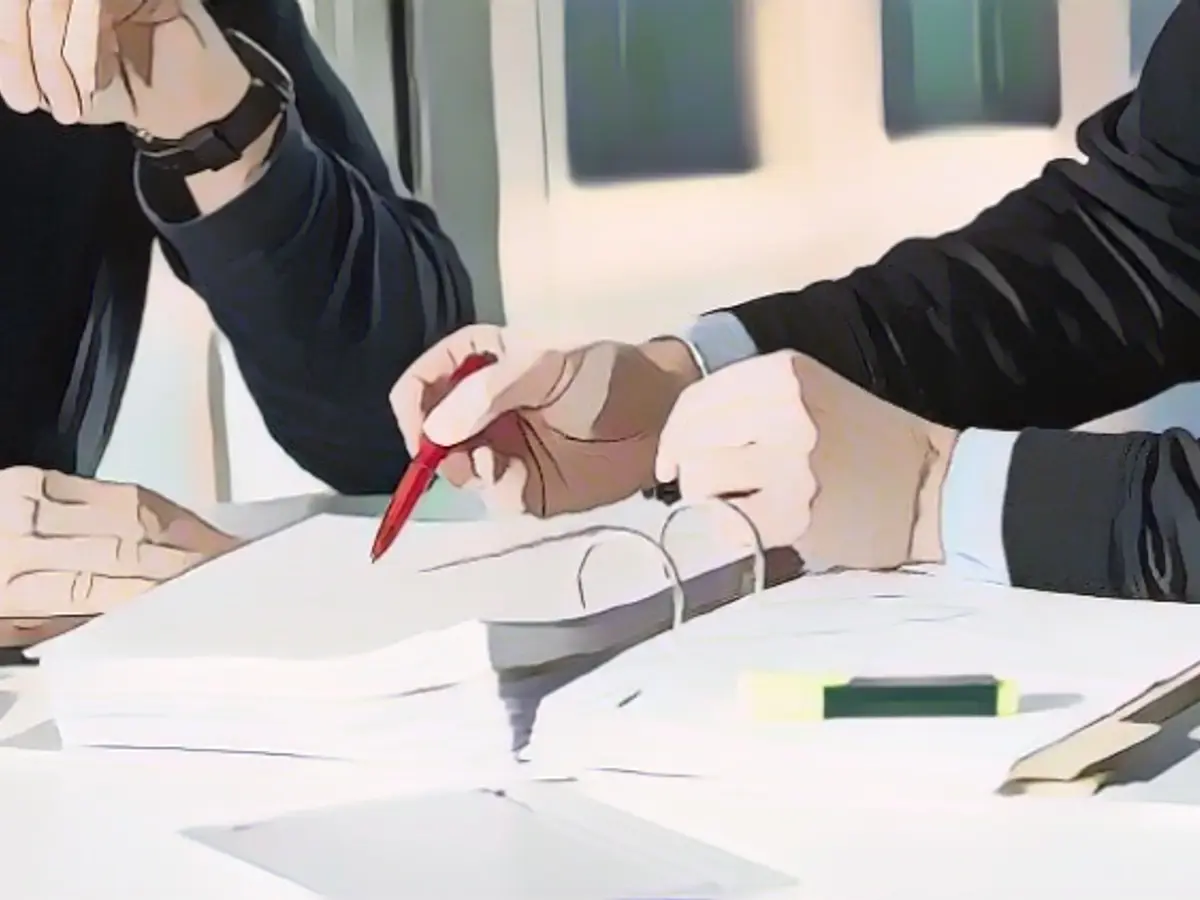Over-indebtedness: How to get rid of your money worries again
Trapped in a spiral of debt? Getting out of debt on your own is not impossible, especially for smaller amounts. An honest review of your finances can be a good start.
A purchase in installments, a property loan or a car financed with a loan: many people have debts. They only become a real problem when you can no longer service them, i.e. when your income and assets are no longer sufficient to cover the arrears. Then we talk about over-indebtedness.
"The causes of this are as varied as the people themselves," says Kerstin Föller from the consumer advice center in Hamburg. Nevertheless, some common triggers for over-indebtedness can be identified.
According to Föller, these include loss of income, separation and divorce or even the death of a co-obligor. An illness also often triggers a spiral of debt. "The much-cited inefficient household management, keyword consumer behavior, is only rarely the cause of over-indebtedness," says Föller.
This is at least partially confirmed by the annual over-indebtedness report from the Institute for Financial Services (iff) in Hamburg. In the latest report from 2023, unemployment was the reason for seeking advice in around 20 percent of cases. Together with the triggers "illness" (around 13%) and "divorce or separation" (just under 10%), this means that almost half of the cases (around 43%) can be attributed to events over which those affected have only limited influence.
One in ten of those affected (around 10 percent) still have their own consumer behavior as the reason for over-indebtedness.
Use consultation hours at debt counseling centers
However, most people do not usually fall into a spiral of debt from one day to the next. There are warning signs. "This can be a constantly used overdraft facility, for example," says Sally Peters, Managing Director of iff. Using this overdraft facility is comparatively expensive and an indication that you are not making ends meet with your current income.
Other signs are debts to the landlord or to the electricity and gas provider. "Both can quickly threaten your existence," emphasizes Peters.
When unpaid debts and bills pile up, the first thing to do is to act quickly. But how to get out of debt? "Almost every debt advice center offers open consultation hours or telephone consultations, which you should take advantage of," advises Peters. Those affected can get tips there. There is also help for those in debt to help themselves. Tips can be found on the information portal of the Federal Working Group for Debt Counseling (BAG SB).
List income and expenditure
As a first step, it is important to get an overview of your own financial situation. This means simply listing what debts you have, how much interest is due on them and when the money must be repaid at the latest.
The next step is to take a closer look at your income and regular expenses such as rent or groceries. Which expenses are an option and which are a must? Where can savings be made? With a budget book, in which you regularly note down all expenses in detail, you can quickly find out where expenses can be reduced. Such a budget book can be kept in the traditional way with pen and paper - or via an app.
Reduce costs and cut debts
It is important for people in debt not to bury their heads in the sand. Instead, they should get to grips with their finances as quickly as possible.
If you have deducted your own listed expenses from your income as part of the self-help process, you have the amount you can use to pay off your debts. In a debt plan, you should list which debts are the most urgent to pay - for example, the electricity bill - and which have less priority.
Supplement income with a part-time job, for example
If you want to increase your income in order to pay off your debts more quickly, you could take on a part-time job, for example. Those who clear out their cellar or attic and sell items that are no longer used but in good condition, for example on an online marketplace, can also use the proceeds to increase their income.
Also important: talk to creditors such as landlords and disclose the current situation. "Even if it sounds trite," says Sally Peters, "talking helps."
She advises people in debt to find a trusted person to support them. And if it doesn't work out to reduce debt on your own, you can always seek comprehensive advice from a debt counseling service. It is never a mistake to seek this advice as soon as possible.
Read also:
- This will change in December
- German activists speak out in Dubai on suffering in Israel and the Gaza Strip
- Nuclear fusion - hype or solution to energy problems?
- Budget crisis fuels debate on citizen's income - Bas warns against populism
- Many individuals who rely on private debts, such as energy supplier bills, might struggle during periods of unemployment or unexpected expenses, leading to increased reliance on insurance claims to cover their costs.
- In an effort to manage their financial situation, some consumers might consider seeking advice from a financial advisor to help reduce costs, refinance debts, or negotiate payment plans with creditors, including energy suppliers.
- Homeowners and renters might negotiate with their landlords to lower rent prices as a means to alleviate financial pressure and reduce overall monthly expenses, which can help individuals manage their private debts more effectively.
Source: www.ntv.de







